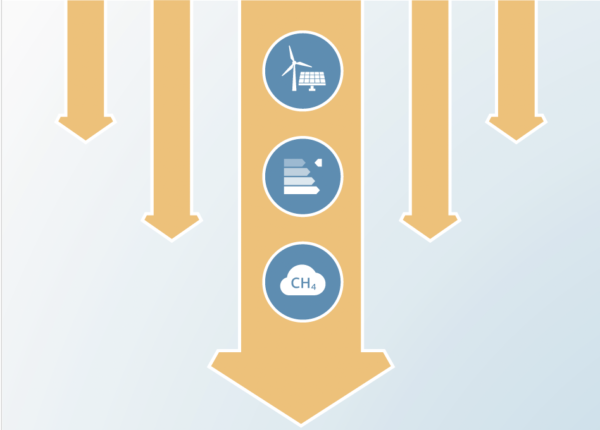Glasgow’s 2030 credibility gap: net zero’s lip service to climate action
Authors
Claire Stockwell, Andreas Geiges, Deborah Ramalope, Matthew Gidden, Bill Hare, Maria José de Villafranca Casas, Mia Moisio, Frederic Hans, Silke Mooldijk, Niklas Höhne, Hanna Fekete
Share

In Paris, all governments solemnly promised to come to COP26 with more ambitious 2030 commitments to close the massive 2030 emissions gap that was already evident in 2015. Three years later the IPCC Special Report on 1.5°C reinforced the scientific imperative, and earlier this year it called a climate “code red.” Now, at the midpoint of Glasgow, it is clear there is a massive credibility, action and commitment gap that casts a long and dark shadow of doubt over the net zero goals put forward by more than 140 countries, covering 90% of global emissions.
Policy implementation on the ground is advancing at a snail’s pace. Under current policies, we estimate end-of-century warming to be 2.7°C. While this temperature estimate has fallen since our September 2020 assessment, major new policy developments are not the driving factor. We need to see a profound effort in all sectors, in this decade, to decarbonise the world to be in line with 1.5°C.
Targets for 2030 remain totally inadequate: the current 2030 targets (without long-term pledges) put us on track for a 2.4°C temperature increase by the end of the century.
Since the April 2021 Biden Leaders’ Summit, our standard “pledges and targets” scenario temperature estimate of all NDCs and submitted or binding long-term targets has dropped by 0.3°C to 2.1°C, but this improvement is due primarily to the inclusion of the US and China’s net zero targets, now that both countries have submitted their long-term strategies to the UNFCCC.
There has been insufficient momentum from leaders and governments to increase 2030 climate targets ahead of, and at, Glasgow: NDC improvements submitted over the last year have reduced the emissions gap in 2030 by only 15-17%. The biggest absolute contributions to this narrowing come from China, EU and the US, though other countries with lower emissions levels have also improved their NDCs.
Contrary to the Paris Agreement’s requirement that each NDC update is a progression beyond the last, several governments have only resubmitted the same target as 2015 (Australia, Indonesia, Russia, Singapore, Switzerland, Thailand, Viet Nam), or submitted an even less ambitious target (Brazil, Mexico). Some have not made new submissions at all (Turkey and Kazakhstan), and Iran has yet to ratify the Paris Agreement. Even with all new Glasgow pledges for 2030, we will emit roughly twice as much in 2030 as required for 1.5°. Therefore, all governments need to reconsider their targets.
Globally, around 90% of emissions are now covered by net zero targets. While these targets are an important signal, and some have accelerated governments’ climate action, the quality of most remains questionable. If all the announced net zero commitments or targets under discussion are implemented, this would bring our temperature estimate for this “optimistic scenario” down to 1.8°C by 2100, with peak warming of 1.9°C. But this is only IF these targets are fully implemented, and it’s a big IF. Our analysis shows countries with an “acceptable” net zero rating cover only 6% of global emissions.
No single country that we analyse has sufficient short-term policies in place to put itself on track to its net zero target. The net zero CAT assessment also includes announcements made by governments which are not backed up by any national legislation, nor plans. Some lack critical information to allow for a full evaluation of the target’s likely impact, including whether net-zero is defined as CO2 only or covers all greenhouse gases. It also needs to be emphasised that our ‘optimistic’ assessment of end-of-century median warming of about 1.8°C is not Paris Agreement compatible and that warming of 2.4°C or more cannot be ruled out.
2030 actions and targets are more often than not inconsistent with net zero goals, so that the gap between current policies and net zero goals is now 0.9°C. This, we consider, is the credibility gap that Glasgow needs to address.











